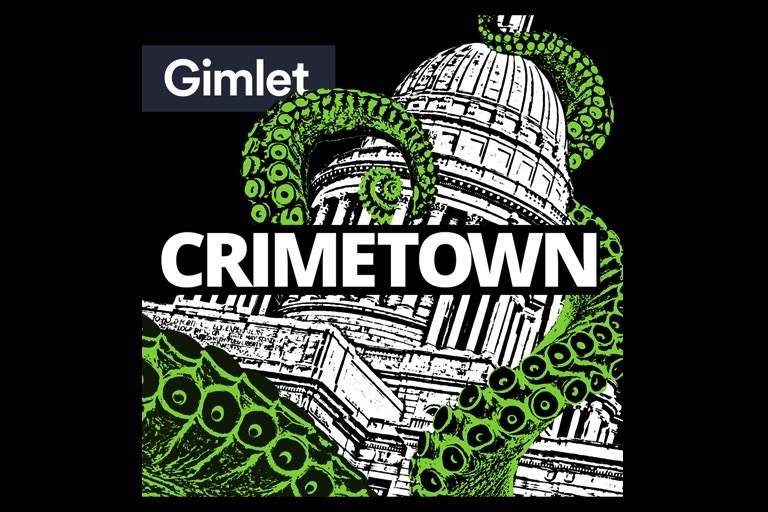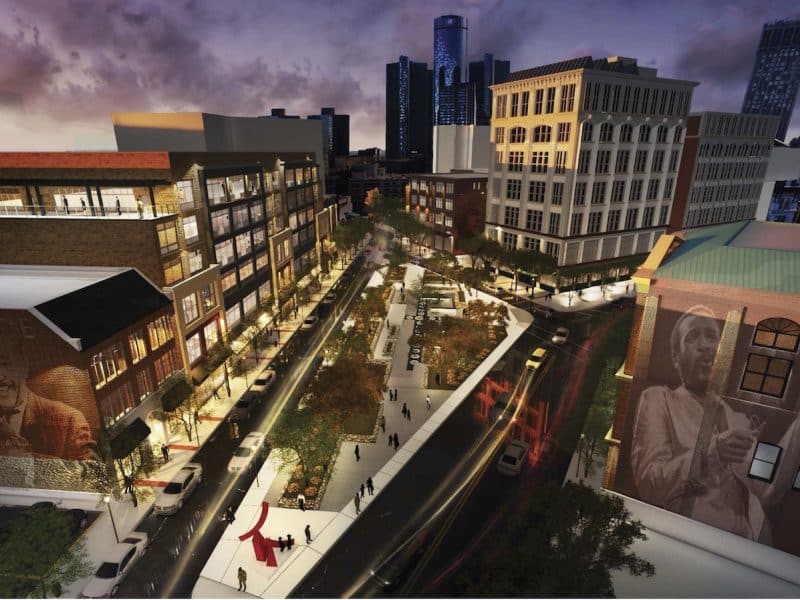Q&A: Crimetown senior producer on why the podcast chose to cover Detroit for Season 2
We spoke with Crimetown senior producer Drew Nelles about the podcast, possible solutions to crime and corruption, and what he learned during his time in the city.

Crimetown, a podcast about the history of crime in American cities, chose Detroit as its location for Season 2. Episodes cover stories of policing, the drug trade, political scandals, and more.
We spoke with Crimetown senior producer Drew Nelles about why the podcast chose Detroit, possible solutions to crime and corruption, and what he learned during his time in the city.
Model D: What was the impetus for starting this podcast? Why the fascination with crime and its intersection in city/civic life?
Drew Nelles: The show was started by Marc Smerling and Zac Stuart-Pontier who come from mainly a film and T.V. background. They’ve done a lot of crime-related work and started getting interested in podcasts. The genesis of the show was really their interest in doing a series on Providence, Rhode Island. Marc had married a woman from Providence, from an Italian-American family, and was familiar in passing with the history of the mob and political corruption there.
And so they wanted to do this thing about Providence, but quickly saw how it could be applied to any number of places. I was a producer on the first season.
How did you come to choose Detroit as the setting for Season 2?
When Season 1 wrapped, we had long list of cities that we looked at, but Zac became very interested in Detroit very quickly. Initially his interest was in the Kwame Kilpatrick saga, which we’ll be covering in quite a bit of detail later in the season. But then we all started digging in a little more and it just quickly became obvious that there was a lot going on in Detroit’s history and its history of crime and corruption that felt immediately resonant in a very contemporary way.
In Season 1, this interesting thing happened. We were working on it in lead up to the 2016 presidential election and people were constantly making comparisons between Mayor Buddy Cianci and Donald Trump. Then Trump got elected. A few weeks later we launched and those comparisons took on a whole new meaning. Even though the season spanned four decades, it felt like what we were talking about was going on in American politics right then.
Something similar happened with Detroit. I think the city is kind of sick of being a national allegory, but that’s why the rest of the country is so fascinated with Detroit. It just seems to encapsulate all the hopes and disappointments of the American experiment. It was the birthplace of the automobile industry and the arsenal of Democracy and then it went on the decline along with the rest of the country. It was the canary in the coal mine for de-industrialization and racism and the crime, corruption, and urban decay that came to plague the rest of the country.
As we were digging into specifics, we realized how resonant many stories from the past were going to feel. There’s the story of STRESS, the controversial decoy police unit. It’s all about white cops killing black men, something very much top of mind right now. It’s an opportunity to remind listeners that this probably didn’t start just because people can now record police shootings on cell phones — it’s been going on for decades. A lot of the episodes are about the heroin trade. With the opioid epidemic, people are thinking about that a lot. Tied to that are stories about the failures of the war on drugs.
This is a story about a lot of issues that are really relevant to people right now: policing, the war on drugs, race, de-industrialization, urban decay. It felt so contemporary in such exciting way.
What were some of your favorite or most fascinating findings from your time in Detroit?
I had never been to Detroit before traveling there with a colleague to report. I had seen photos of Detroit and read a ton. Like everyone, I was shocked and overwhelmed at the extent of the blight and urban decay. But no matter how many photos of ruin porn you’ve seen, it’s still shocking to drive by the Packard Plant and see this massive factory that’s empty or to drive through a neighborhood that’s just row upon row of abandoned houses.
But that’s an incomplete picture of the city. Once you get past that surface level stuff, there was a lot I was surprised by. Throughout Detroit, there’s beautifully maintained homes with well kept lawns and gardens and cars in the driveway. There’s people who care a great deal about their neighborhood and community right next door to a house that has boarded up windows and is hollowed out. I was surprised to see that those two extremes could coexist in such close proximity to each other.
It speaks to all damage done to Detroit by forces out of control of the city’s residents. But it also speaks to the resilience of Detroiters. While some parts give you an eerie sense of emptiness when you drive through them, in other parts the people are so warm and welcoming even after everything that’s happening to them and the well-justified suspicion they have of outsiders coming in to do another story about how shitty Detroit is.
But that’s very much not the story we wanted to tell.The advantage of the audio form is it’s just people talking. No matter what, the city going to feel alive and vibrant. The fact that we have these amazing people, characters, and interview subjects telling their stories and the story of the city means it feels very different from yet another “Detroit is full of crime and falling apart” narrative. We’ve been really lucky to find so many compelling, charismatic people to act as our guides to the city.
I and everyone else who worked on this has really fallen in love with Detroit. We loved going there and reporting there. I get a rush whenever I land and drive my rental car into the city. It’s been such an honor to get to go there and talk to the people of Detroit.
We’re a solutions-based publication, so I’m wondering if your time in Detroit and Providence have lead you to think about how cities can reduce corruption and crime.
We’re not exactly a solutions-based podcast. So, honestly, this is probably not the answer you’re looking for.
However, both Providence and Detroit are post-industrial cities. They had a thriving economic and manufacturing base, and a series of decisions by politicians and business people, along with a series of macro-economic factors meant that those industries were either taken elsewhere or innovated into obsolescence. That’s well beyond the control of the people whose lives were very much tied up in those industries. That devastates a city that was heavily reliant on one industry. Once that happened, it began to empty out. There was also a great deal of racial discrimination in housing and employment.
And when people run out of options, they turn to crime, to what sociologists call the “informal economy.” That’s going keep happening and no amount of drug crackdowns are going to stop people from doing or selling drugs. Especially when people on both sides of that exchange don’t have other options. When you don’t have a lot of employment options, it makes a great deal of sense to turn to either doing drugs as means of escape or selling drugs as a means of employment.
I truly believe that we’re not going to reduce crime until those very basic issues around employment and economic well being and dignity are addressed.





